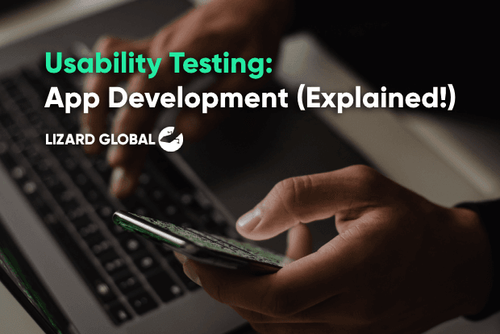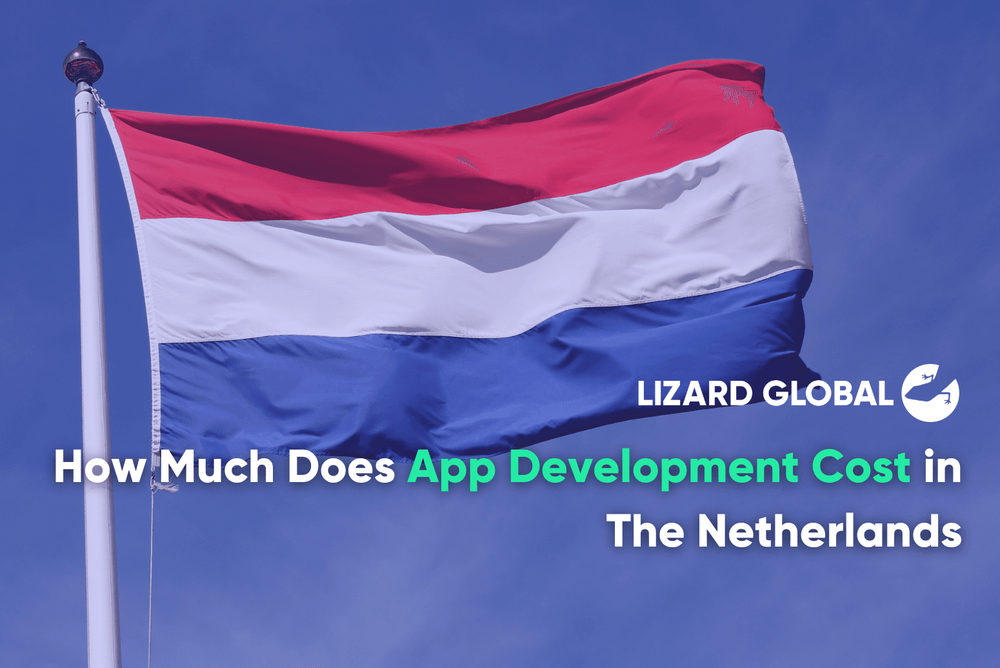How Much Does It Cost To Develop An App In 2025?
Get the latest updates about our blog posts.
Subscribe so you don’t miss out!
Key Takeaways
- App Costs Vary by Type and Complexity: Basic apps are more affordable, while advanced enterprise or gaming apps are significantly more expensive.
- Platform and Features Influence Price: Single-platform apps are cheaper, while cross-platform development and custom features like AI or security add to the cost.
- Design and Backend Are Key Factors: The complexity of design and the need for backend development impact overall expenses.
- Ongoing Expenses Are Important: Maintenance, updates, hosting, and marketing require consistent budgeting.
- Developer Expertise Matters: Rates vary based on the experience and specialization of the development team.
Businesses are no strangers to the need for having a strong digital presence today. It is an essential need in order to stay ahead of the competition. Beside having a strong web presence or social media presence many businesses have moved towards the direction of mobile apps. With this comes the wonder - how much does it cost to build an app?
For businesses that are new to the world of mobile apps, this question is a valid one as there are many sources out there that give varying numbers but may not fully explain why there is such a vast difference.
In this blog, we delve into the estimated cost for building a mobile app in 20205 depending on the type of app needed, and what are the factors that influence the price?
Already know what app you want to build? Try out our FREE App Cost Calculator to get an estimate.
What Type Of App Do You Need - B2B or B2C app?
The type of business you develop an application for can greatly influence the price of the development process and everything involved. Different target markets have different needs, which affects the features and functionalities of your application, and therefore the price. There are some distinctions between a business-to-consumer (B2C) and business-to-business (B2B) application.
B2C companies usually develop applications for the public to use. These are the apps you’ll find in the app store, varying from leisure games to productivity trackers and social media platforms.
B2B-focused applications are made with the goal to both improve internal and external business processes. While you can find many B2B apps in the app store, a lot of them are only available as a product with a monthly or yearly subscription on the product’s website.
B2B App Development
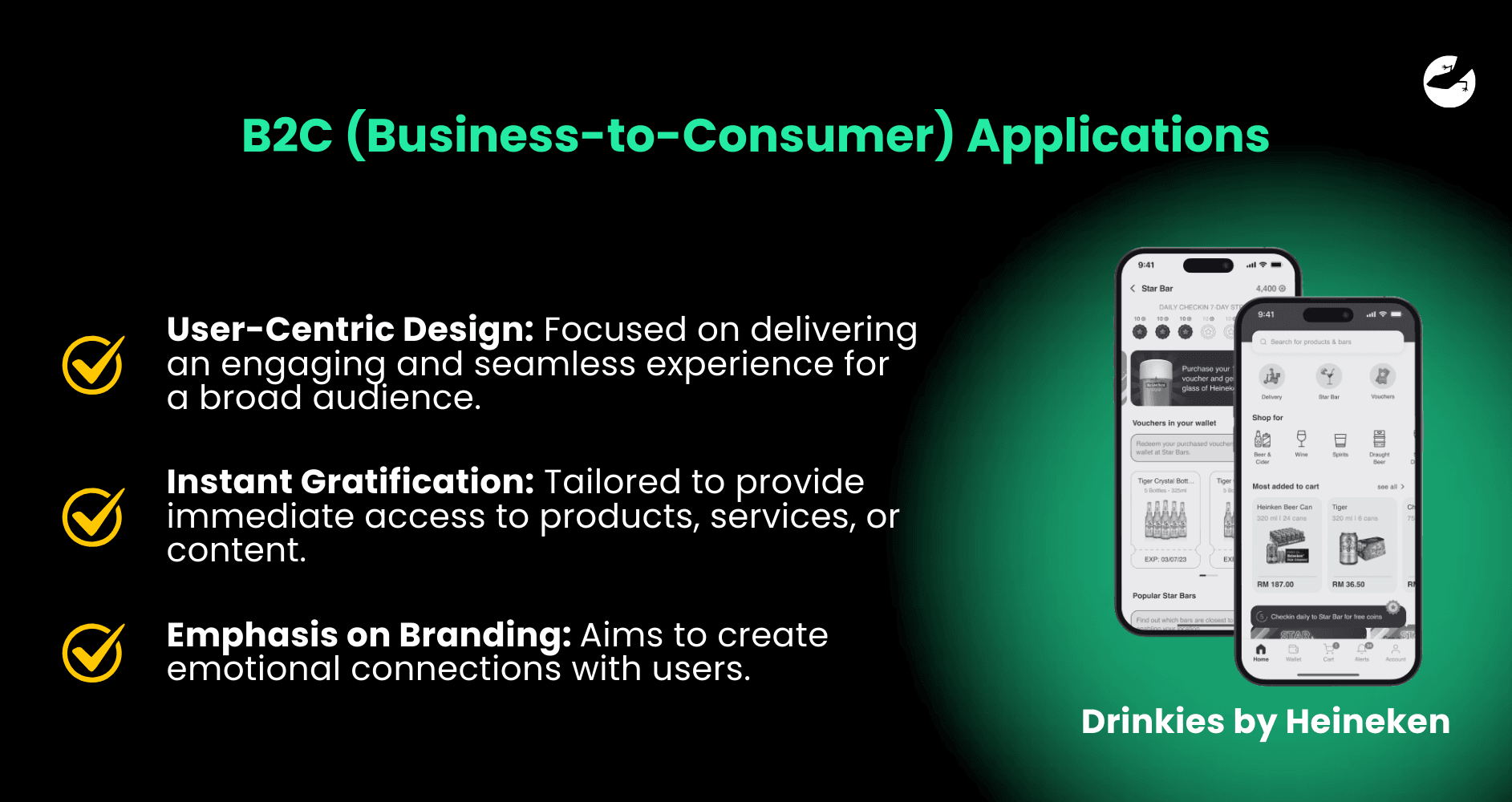
Your focus as a B2B company is on experts working for larger enterprises. As a result, the number of possible users for your software is limited. You might, for example, target exclusively large companies' logistics divisions. In the Netherlands, there are tens of thousands of them. It is unlikely that hundreds of thousands of users will use your service at the same time.
Whereas, B2C applications focus on entertainment, B2B apps focus on solving an often business-related problem. This can be the automation of certain processes to increase overall productivity and efficiency, like Salesforce’s CRM software. Or implementing a centralized dashboard for providing real-time data insights, such as Google Analytics.
B2B apps generally provide a subscription service for businesses, either limited to their own company, but more often available for other businesses facing comparable problems and requiring the same solution. These apps are not available in the app store, as solutions like these require a tailored and custom implementation into a business, rather than a quick plug-and-play tool.
B2C App Development

In B2C applications, consumers are more broadly targeted. The app can be used by millions of people at the same time and anyone can install and use the app whenever they want.
Consumer applications are generally focused on entertainment, content, or building new relationships, whereas business apps solve a business problem. If you're in the B2C market, you're up against not only rival apps for your customers' money and attention but also time and money-consuming activities that fall outside the digital environment.
Because there are more choices to optimize and consumer needs and tastes are more fickle and ever-changing, B2C applications are updated more frequently, and often, design plays an essential role.
Users can easily drop out if they do not pay enough attention to small details because there are thousands of alternatives available. B2C applications are typically “freemium models”, which are free to install and initially use, but they are nevertheless profitable because they often provide advertising space, sell in-app extras, or subscription-based services.
Want to find out how much it costs to build your dream app or web app?
What Influences The Cost Of App Development?
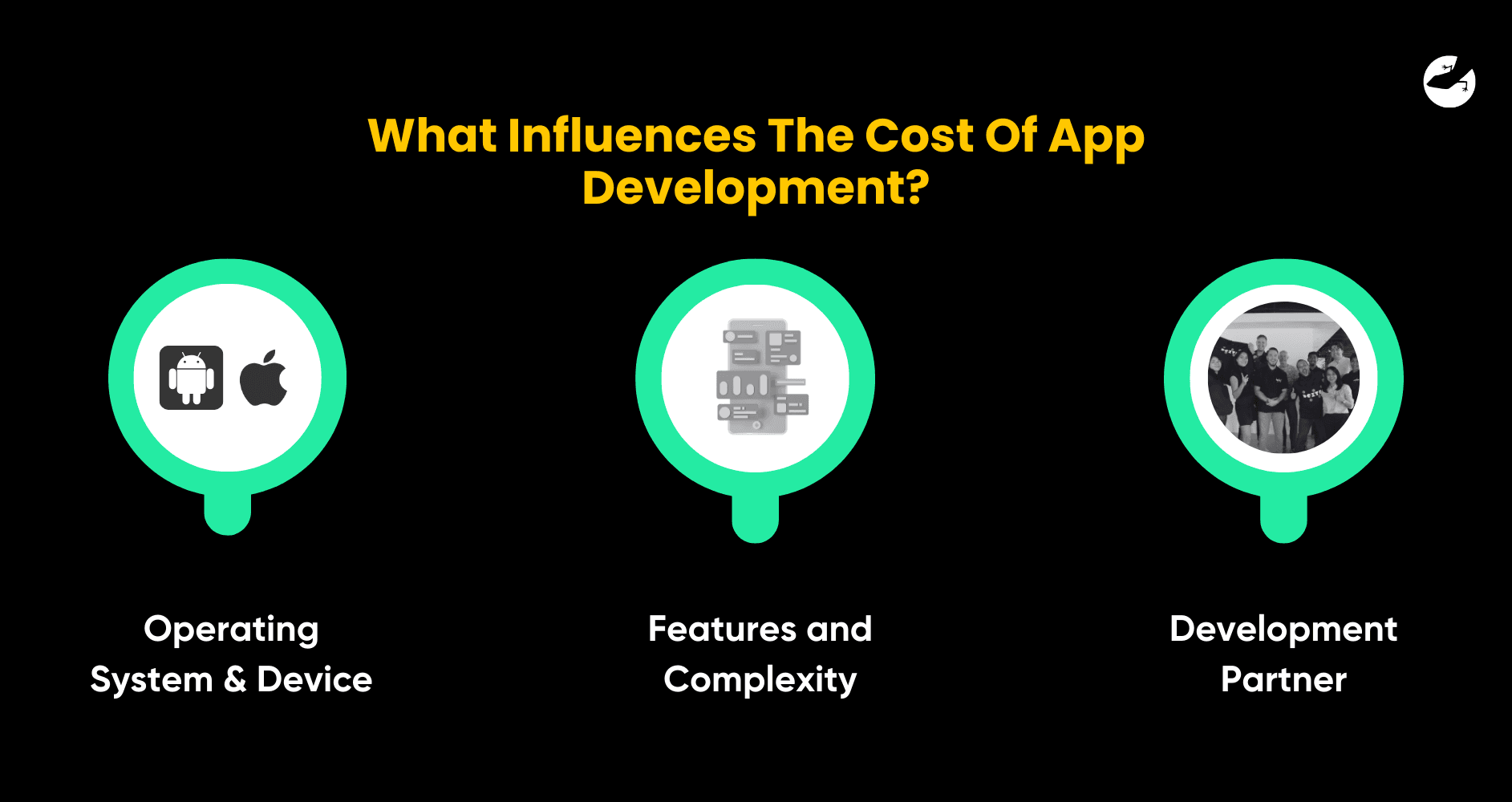
It’s best to keep in mind that each development project is unique. As such the cost will definitely vary from one to another. For example, a B2B app will require different features than a B2C app. Each feature costs a certain amount and with more complicated features the cost could significantly increase. Depending on the type, features, and complexity of the app, the cost to design and develop a mobile app can range from $50,000 to $500,000, or even more than a million dollars.
There is no specific figure for the cost of developing an app, and the range between a budget app and a million-dollar app is massive. So, how can we come closer to an answer? The price of an application is generally bound to three main aspects:
1. Operating System & Device
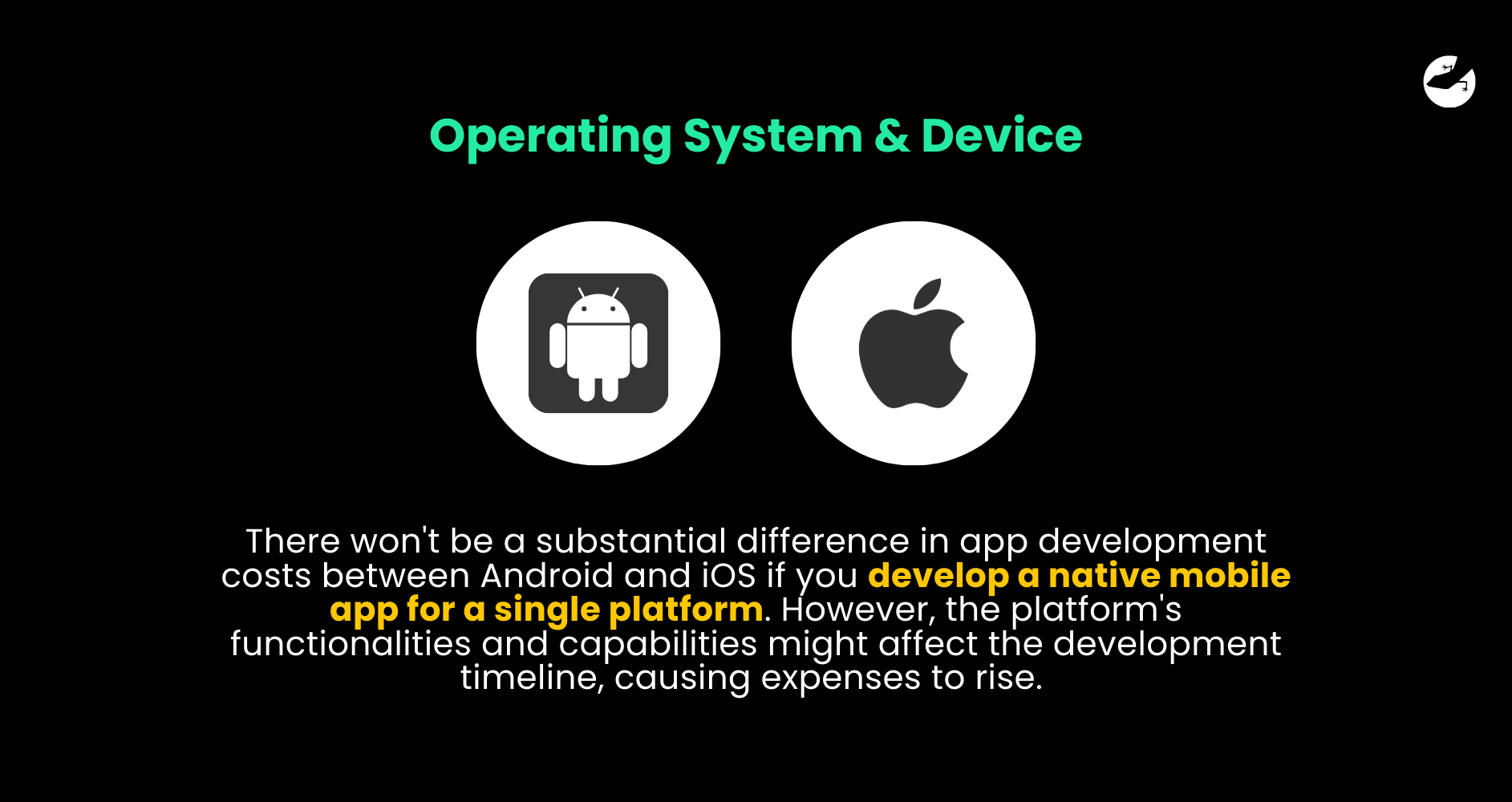
There won't be a substantial difference in app development costs between Android and iOS if you develop a native mobile app for a single platform. However, the platform's functionalities and capabilities might affect the development timeline, causing expenses to rise.
The costs of building apps for both platforms separately would likely result in double the price. Most of our clients opt for cross-platform development as it is the most cost efficient and functions perfectly for both iOS and Android. Both of these development platforms use different frameworks and software development kits (SDK), which have an impact on app prices.
Native development is appropriate for high-performance programs or those with a lot of complex animations or a complicated user interface. Native mobile apps are technically superior to web apps since they are better tuned for an optimized user experience. They use specialized toolkits and programming languages for iOS and Android apps, such as Swift for iOS and Java or Kotlin for Android. Native app development is generally more expensive and takes longer to complete.
When compared to native mobile app development, progressive web apps have a variety of benefits and drawbacks. Web apps must be responsive, meaning that they must look attractive and provide the same level of usability regardless of the size of the user's screen. The software must also work in a number of browsers and on a variety of operating systems.
Most browsers and operating systems share many of the same standards, making PWA programming much easier for programmers. Next to that, with a web app, you are not bound by the Apple App Store and Google Play Store's rules and requirements. If you want to develop an application for multiple operating systems without paying top dollar, progressive web apps are often the best choice.
2. Features and Complexity
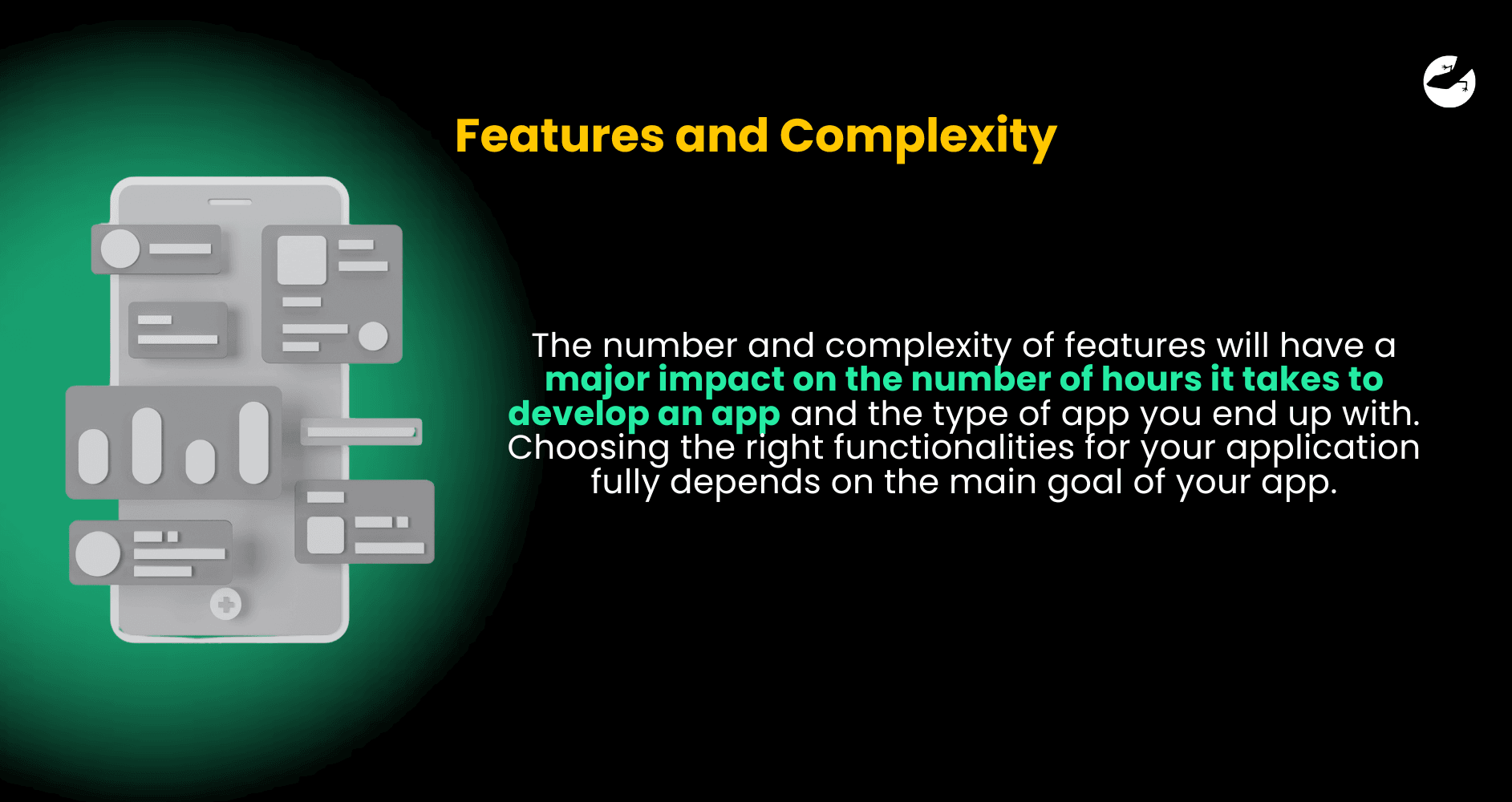
To determine how much the development of your app will cost, you must first define the complete scope of the features you intend to include. The number and complexity of features will have a major impact on the number of hours it takes to develop an app and the type of app you end up with.
Choosing the right functionalities for your application fully depends on the main goal of your app. For example, if you want to develop a navigation app for cyclists, you will need to prioritize the implementation of a GPS tracker and an offline mode, while you can leave payment plugins and social connectivity for later.
At Lizard Global, our development process always starts with an MVP, or minimum viable product, which is a product that consists of only the necessary components to test the app out among its first users.
Want to know more about that? Check our blog on Minimum Viable Product (MVP)
3. Development Partner
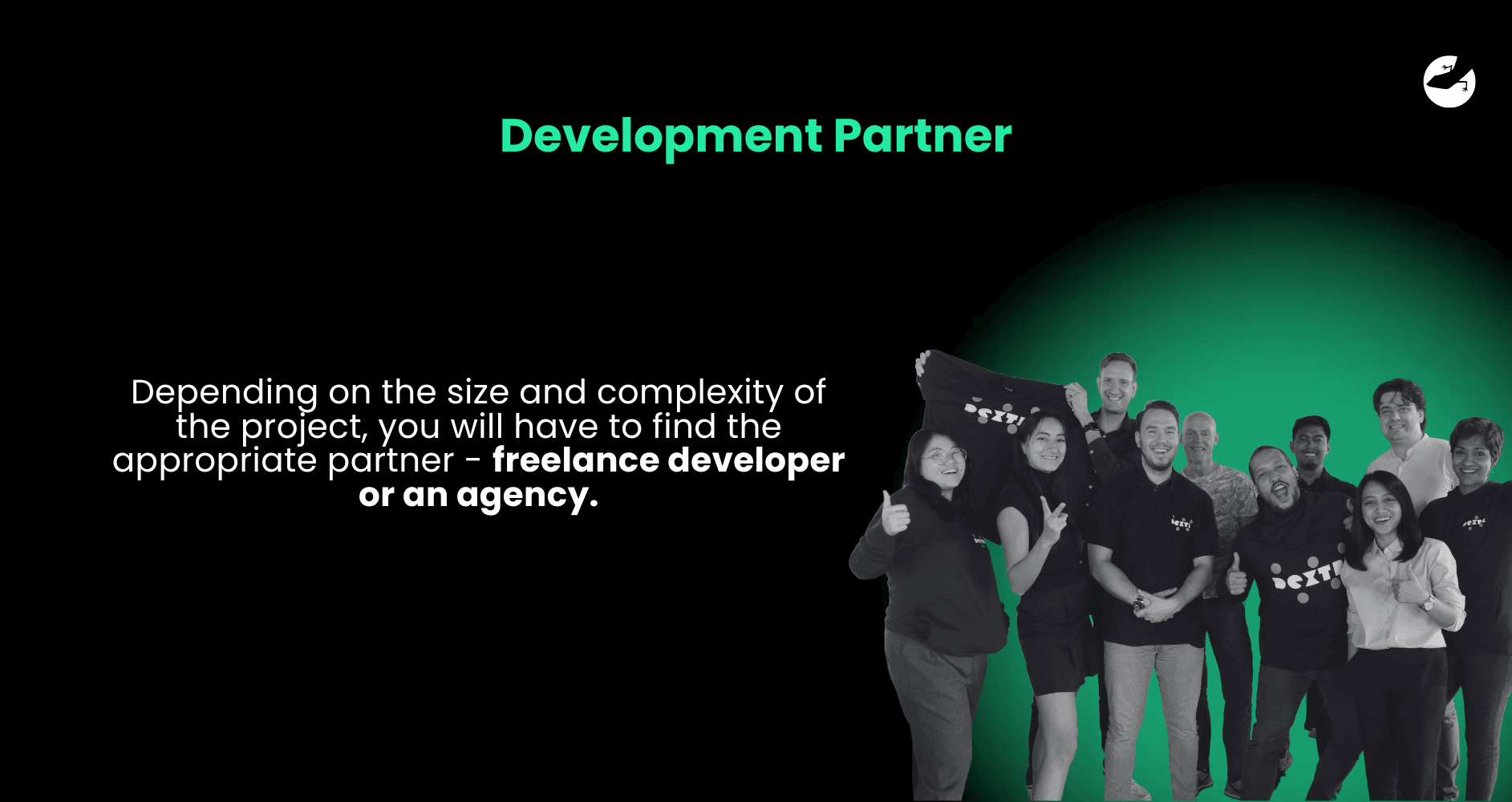
In order to end up with a professional and well-functioning application, you’ll need the help of a development partner. This can be a freelance developer, or an entire team or agency providing a complete package of services that can contribute to the successful development of your app.
You can also choose to employ professionals to supplement your existing in-house development team. All of these options have their advantages and disadvantages that have a substantial impact on the entire cost of app development.
Depending on the size and complexity of the project, you will have to find the appropriate partner. However, price should not be the only consideration. Instead, think of the development team's specialization, expertise, and experience. You can ask for references and check client feedback on recent projects on agency review platforms like Clutch and Sortlist.
Find out how and where you can find the right development partner for your project in this comprehensive blog!
So, How Much Does It Cost To Build An App In 2025?
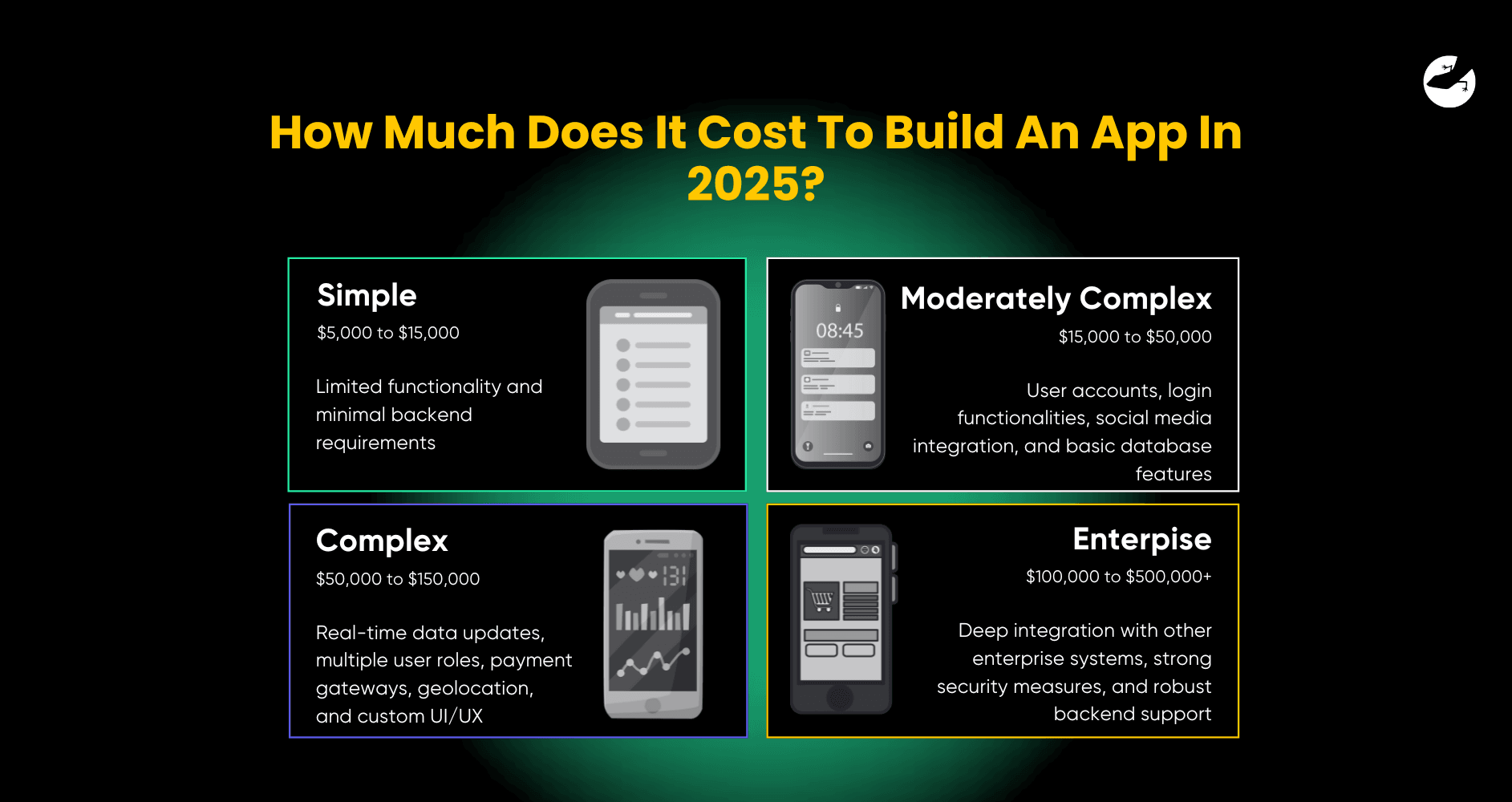
Now that you have an idea of what types of apps there are and what influences the cost of developing an app, let us share some numbers with you based on our 13 years of experience in the custom software development field.
Basic App
For a basic or simple app with minimal features, such as a calculator, to-do list, or other single-function tool, the costs can range from $5,000 to $15,000. These are apps with limited functionality and minimal backend requirements, making them the most affordable to develop.
Moderately Complex App
Moderately complex apps are those with user accounts, login functionalities, social media integration, and basic database features. It has more features and backend complexity. If we take for example a fitness tracking app or a weather app a moderately complex app could range between $15,000 to $50,000.
Complex App
Complex apps are apps with advanced features such as real-time data updates, multiple user roles, payment gateways, geolocation, and custom UI/UX. The best examples of these types of apps are e-commerce apps, food delivery platforms, and financial apps. Development costs for a complex app range from $50,000 to $150,000 or more (depending on the features and complexity).
Enterprise App
Enterprise apps are developed specifically for internal business use (e.g., CRMs, project management tools). The cost for these types of apps vary significantly as they often require deep integration with other enterprise systems, strong security measures, and robust backend support. Enterprise apps typically cost anywhere from $100,000 to $500,000+.
Already Have An Idea For Your App? Get A FREE Estimate Now!
Questionnaire
01
What type of application are you interested in building?
Web Application
Mobile Application
Progressive Web Application
Things To Consider Before Designing And Building Your App
We hope that it is clear that the price of an app isn’t just something you can jot down on a piece of paper. It’s complex and dependent on a wide range of factors included in the development process. In order to make sure you’re prepared for that process, a solid plan can take you a long way.
Having a concrete vision of what you want to develop can help you in many ways. Not only does it make it easier for you and your development partner to estimate a concrete budget, but it can also save you quite some time, and therefore money.
If you already have a clear idea of who your target audience is and what platform they use, what main functionalities need to be included in your app, and what your longer-term business plan looks like, you’re already off to a great start and probably already saved yourself some money.
In our blog on preparing for an app development partnership, we provide some helpful tips and actionable steps to get you started.
Our digital workshops are great for starting off your digital partnership. During these workshops, we dive into the ins and outs of your target audience, industry, and market to get a concrete idea of what problems need solving.
Need a hand?
At Lizard Global, our cross-functional team of app development experts is specialized in taking your plans and dreams to the next level by turning them into a concrete plan-of-action to work towards a fully developed product that’s ready to take over the market.

If that’s what you’re looking for, we gladly lend you a hand in the development of your digital solution. Get in touch with our experts to find out more about our development process and how we estimate the price of development at Lizard Global.


